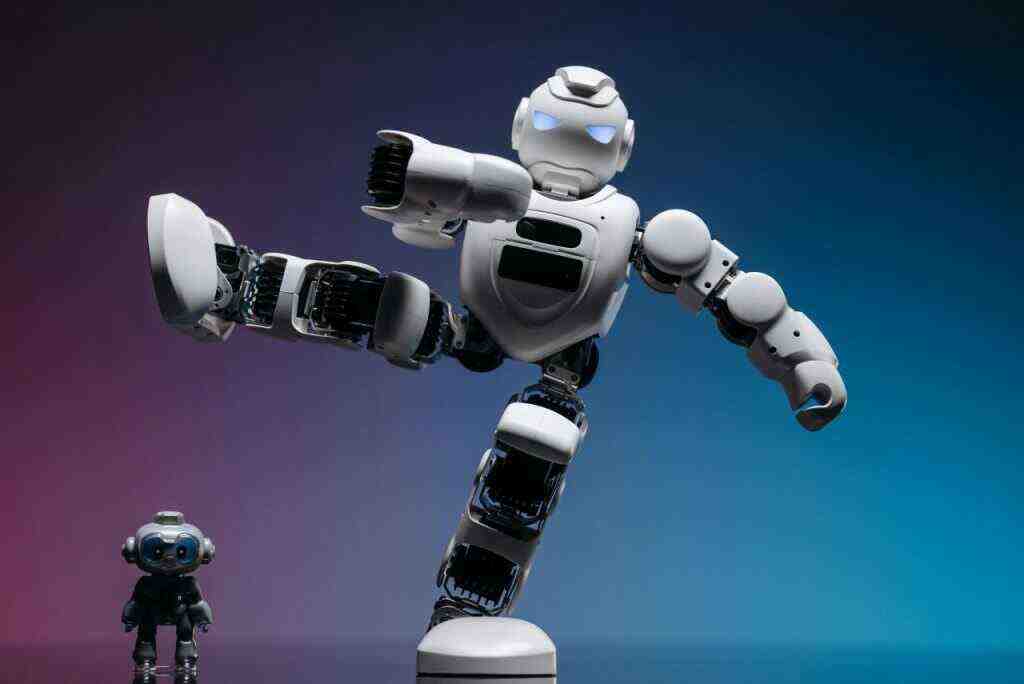The Rise of AI Robots: Promises and Perplexities
A Saga of Innovation and Ethical Conundrums
In the heart of Denver’s bustling LoDo district, a sentinel of innovation stands guard—LoDoMus Prime, an AI-powered robot, patrols the streets, embodying the growing presence of autonomous technology in our society. Deployed by Knightscope, a company dedicated to enhancing security, LoDoMus Prime is one of over 7,000 robots patrolling various locations across the United States. Equipped with cutting-edge technology, these robots capture 360-degree video in stunning 4K resolution, harnessing thermal imaging capabilities, detecting gunshots with remarkable accuracy, and seamlessly communicating with emergency responders, all orchestrated by the power of artificial intelligence (AI).
Redefining Security: A Safer Tomorrow
Within the confines of this garage, a tangible transformation has taken place. Car break-ins, once a prevalent concern, have plummeted by an impressive 70%, attributed to the vigilant presence of LoDoMus Prime. This remarkable achievement underscores the potential of AI robots to revolutionize security measures, fostering safer environments for communities.
Knightscope, led by its visionary CEO William Lee, is embarking on an ambitious mission to deploy a million robots across college campuses, corporate offices, parking garages, and transportation centers in the years to come. The company’s long-term aspiration is to transform the United States into the safest country in the world, leveraging the transformative power of AI-driven technology.
Augmenting Human Capabilities: A Symbiotic Partnership
Lee envisions a future where these machines possess the remarkable ability to see, hear, feel, smell, and speak, extending the capabilities of security personnel and enabling them to effectively monitor multiple locations simultaneously. By delegating monotonous and computationally intensive tasks to these AI-powered machines, human officers can focus on enforcement and critical decision-making, enhancing overall security outcomes.
A Double-Edged Sword: Ethical Quandaries
While the advent of AI robots promises a safer and more secure world, it also raises a chorus of concerns among experts and ethicists. As technology continues to advance at an unrelenting pace, legislation struggles to keep pace, creating a void that necessitates ethical operation by the companies deploying these robots.
Alessandro Roncone, a computer science professor at CU Boulder, cautions against the potential risks associated with AI robots. He emphasizes the urgent need for diverse datasets to prevent these machines from perpetuating biases based on race or creed. Roncone also highlights the importance of transparent access to data collected by AI systems, ensuring that the public has a clear understanding of how this information is utilized.
Bias and Discrimination: A Looming Threat
Recent efforts have emerged to elevate AI risks as a government priority, acknowledging the imperative to establish safeguards that keep pace with innovation. A 2021 study conducted by the University of California Davis revealed the inherent bias in AI systems, leading to discriminatory outcomes, particularly for minorities and women. The study cited instances of facial recognition technologies exhibiting higher accuracy in detecting White faces compared to darker skin tones, resulting in false arrests due to mistaken identity.
Navigating the Ethical Labyrinth: A Collective Responsibility
While there is no evidence to suggest that companies like Knightscope are engaging in such discriminatory practices, experts like Roncone emphasize the necessity of considering these possibilities with equal gravity as profit and innovation. He advocates for a comprehensive shift in the country’s approach, recognizing that addressing these challenges will require time and concerted effort.
Conclusion: A Delicate Balance
The integration of AI robots into our society presents a paradoxical blend of fascination, unease, and anticipation. Their potential to enhance security and safety is undeniable, yet the imperative to mitigate potential risks and ensure ethical operation cannot be overstated. As we navigate this uncharted territory, the onus falls upon all stakeholders, including technology creators, policymakers, and the public, to collectively shape a future where AI robots fulfill their benevolent promise while safeguarding the values and principles that define our society.
